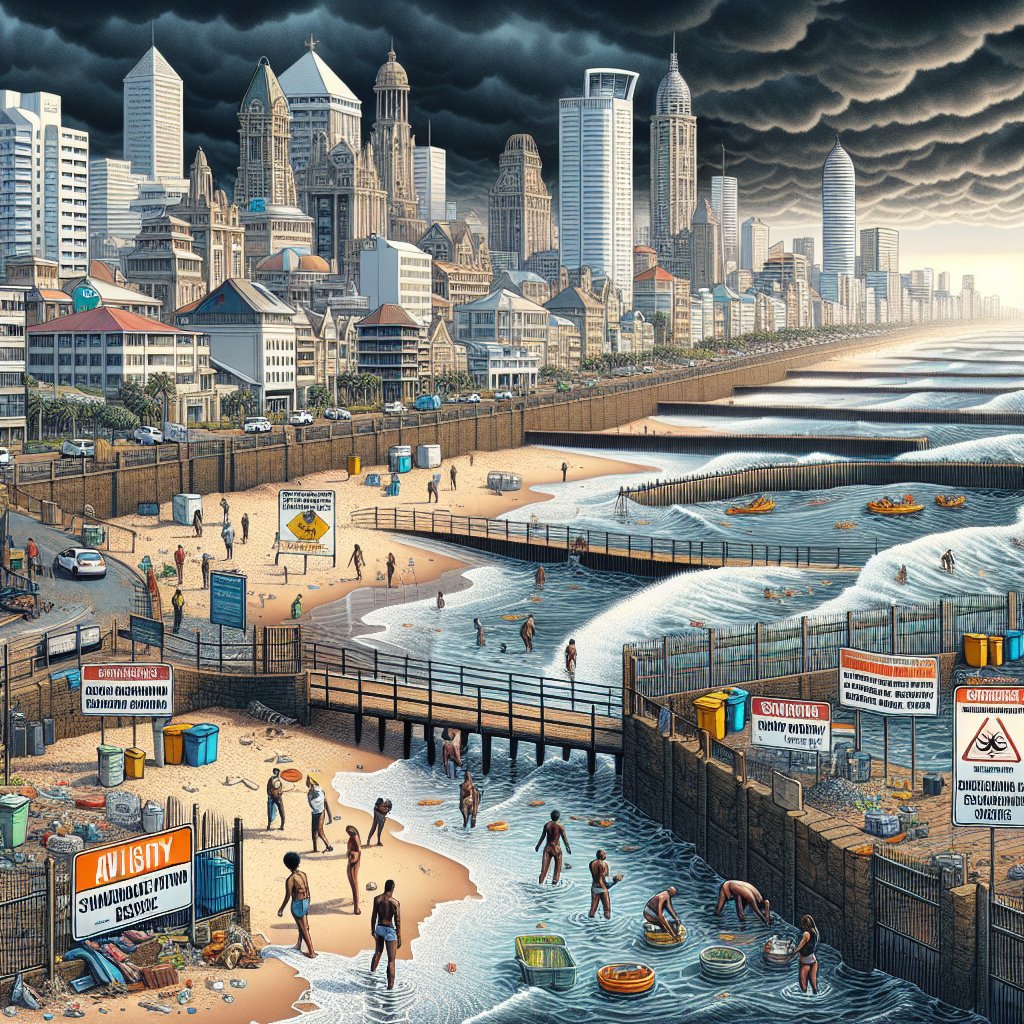Content created by AI
E. coli Contamination Shuts Down Durban Beaches, Impacts Seasonal Plans
Durban residents and visitors will have to find alternatives to cool off this season, as six popular beaches in the city have been officially closed due to dangerous levels of bacterial contamination. The eThekwini municipality, in a proactive safety measure, has barred swimming at these locations until further notice in response to the discovery of heightened E. coli levels.
The unfortunate news comes after the eThekwini municipality, joined by environmental organizations such as Adopt-A-River and Talbot Labs, completed a series of water quality assessments. The beaches affected by the closures include Ushaka, Point, South, North, Battery, and Country Club - all frequented by locals and tourists alike.
The city's spokesperson, Gugu Sisilana, elaborated on the situation, highlighting the link between the recent spell of heavy rain and the subsequent poor water quality. As rainwater sweeps through urban areas and into the sea, it collects pollutants, including E. coli from fecal matter, creating a risk for bathers.
The increased rainfall over the past week has not only led to this unfortunate closure but has also resulted in the rescheduling of numerous outdoor activities. Sisilana assures the public that while these beaches display "poor" water quality and remain closed, resampling and continued monitoring are in effect. This is part of a broader effort, including the routine weekly testing of all 23 bathing beaches in the region and essential repairs to the city's sanitation infrastructure, which has seen significant advancements following damage inflicted by severe floods.
But it's not just swimmers who are affected; the very integrity of the seaside experience is currently compromised. Yogis Govender, a DA eThekwini executive committee member, addressed the heightened dangers associated with swimming in contaminated waters. With the festive season upon us and schools closed for holidays, the issue is particularly pressing. Govender urges the public to understand that water quality results are not immediate and emphasized the importance of adhering to the published safe dates, reminding that E. coli can survive in the sand for an extended period even after the water clears.
The nickname 'Ecoliweni' has been mockingly applied to eThekwini due to its ongoing challenges with sewer pollution. The contamination affects not just the oceans but also rivers and streams, raising concerns about long-term environmental impact and public health.
This closure serves as a sobering reminder of the importance of water quality monitoring and infrastructure maintenance. While the eThekwini municipality and its partners labor to make the beaches safe once again, locals and tourists are advised to stay updated on the status of these popular areas during the holiday season.










